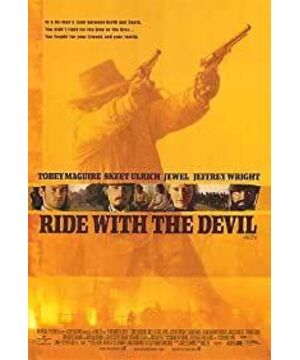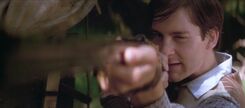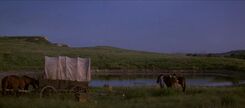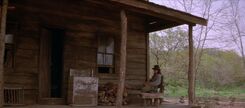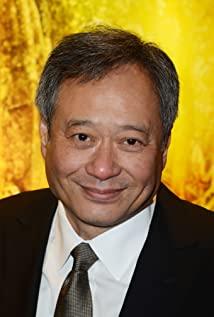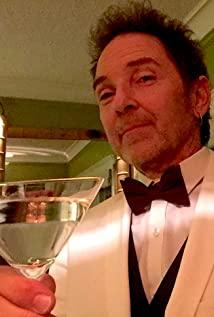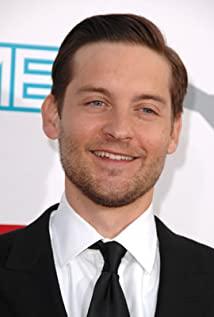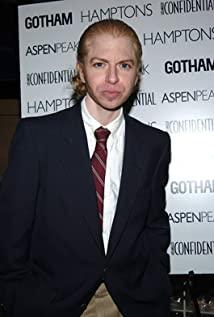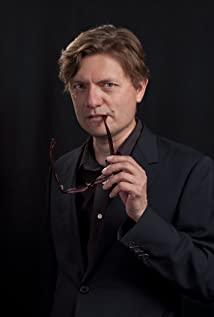"Riding with the Devil" can be regarded as Lee's second only to "The Hulk" movie that suffered a fiasco at the box office. Prior to this, his "Father Trilogy" was nominated or won at home and abroad, which made it famous. Two foreign language films "Sense and Emotion" and "Ice Storm" also won good market reputation. The reason why Ang Lee wanted to make such a movie might have something to do with his own cultural situation. He once mocked himself in interviews and said that because he always played the role of a disadvantaged group (the Kuomintang’s defeated soldiers, foreigners, Chinese Americans), he was born with a special feeling for "losers", and the Civil War—this The turning point in American history, this war that has had a decisive influence on the values of American capitalist society today, is far from being summed up by a slogan of "liberate slaves." The complexity of human nature, the choice between love and righteousness, right and wrong, right and wrong, cannot be explained in a few words. History is always written by victors. In the "main theme" of the American Civil War film, the Civil War is always a black and white posture: the white is the north, the victor, and the blue uniform, and the black is the south, the defeated, and the gray uniform. The North is a symbol of progress and avant-garde, and the South is a representative of stubbornness and conservativeness. But can people really be transformed into two distinct factions? Could it be possible that the Northern Army, under the guise of the so-called "just conquest", could punish prisoners who were compatriots? And no one of the slave owners in the South is forward-looking, foreseeing the arrival of this new world? Jack and Holt, a German and a black, are in the gap between the north and the south, which is incompatible with both sides. In order to follow their masters, they joined the southern guerrillas, fought for revenge and for the defense of tradition. However, in an embarrassing situation in the team, they are often troubled by people. No one will call them by their names seriously. They will always be Dutchy and Nigger. This civil war is also the "war of the heart" of people. In the first scene of the conflict between the North and South Army in the film, when the South Army shot and killed the male owner who was doing business with the North Army, Jack said to Pitt: "We killed her husband and should leave the shop to her." But Pitt was still ruthless. The fire burned the entire store. Personal hatred has caused the death of innocent people. This is not what Jack wants to see, let alone his purpose of fighting. In the inflammatory speech by the former guerrilla leader in the city of Lao, the perfunctory Jack in the crowd had already seen the cruel nature of war. No matter who wins or wins, victory is but the biggest tragedy besides failure. Pascal once lamented "absurd justice with the river as the boundary" in the "Mind"-killing people on the same bank is a murderer, but if the person killed comes from the other bank, the killer becomes a hero who fights the enemy courageously. hero. And at the moment when Jack and Holt drew their guns to protect the residents, they crossed the river of hatred in their minds, and saw through those southerners who were dazzled by their selfish interests and regarded the indiscriminate killing of innocents as a pleasure. The most moving scene in the film is the scene where Jack reads letters to Holt. Holt said, "We may also like people who read letters. He may be a very good person in normal times." But the war has artificially confronted people and persecuted them. They made the so-called "right position" choice. The war obliterated humanity, turned people into murderous machines, was driven by the pleasure of revenge, and lost humanity. Most of the film depicts the ferocity and cruelty of the southern guerrillas in the war. However, those southerners who were enlightened and kind, but died tragically by the Northern Army's butcher, their lives are as light as feathers? Who should pay for their blood and tears? Is it true that if human society wants to make progress, it must use the so-called justice, civilization, liberation and other high-sounding excuses to expel humanity with meaning, obliterate people’s basic rights of survival and choice, and build a society based on blood and corpses. New world? Jack did not shoot at Pitt in the end, proving that he had been freed from the grievances of right and wrong. As he said, "There is nothing right or wrong, that's how it is." When Holt rode a horse away in the morning light, the grievances of war Disturbance ends here. Everyone should see humanity clearly in the war, see themselves clearly, know what they really want, and fight for it. This kind of hope after despair is more precious. Most of the film depicts the ferocity and cruelty of the southern guerrillas in the war. However, those southerners who were enlightened and kind, but died tragically by the Northern Army's butcher, their lives are as light as feathers? Who should pay for their blood and tears? Is it true that if human society wants to make progress, it must use the so-called justice, civilization, liberation and other high-sounding excuses to expel humanity with meaning, obliterate people’s basic rights of survival and choice, and build a society based on blood and corpses. New world? Jack did not shoot at Pitt in the end, proving that he had been freed from the grievances of right and wrong. As he said, "There is nothing right or wrong, that's how it is." When Holt rode a horse away in the morning light, the grievances of war Disturbance ends here. Everyone should see humanity clearly in the war, see themselves clearly, know what they really want, and fight for it. This kind of hope after despair is more precious. Most of the film depicts the ferocity and cruelty of the southern guerrillas in the war. However, those southerners who were enlightened and kind, but died tragically by the Northern Army's butcher, their lives are as light as feathers? Who should pay for their blood and tears? Is it true that if human society wants to make progress, it must use the so-called justice, civilization, liberation and other high-sounding excuses to expel humanity with meaning, obliterate people’s basic rights of survival and choice, and build a society based on blood and corpses. New world? Jack did not shoot at Pitt in the end, proving that he had been freed from the grievances of right and wrong. As he said, "There is nothing right or wrong, that's how it is." When Holt rode a horse away in the morning light, the grievances of war Disturbance ends here. Everyone should see humanity clearly in the war, see themselves clearly, know what they really want, and fight for it. This kind of hope after despair is more precious.
View more about Ride with the Devil reviews


